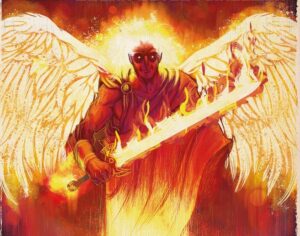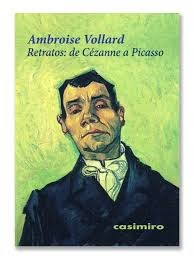A historical fiction about vampires in the Middle Ages is looking for a publishing house.
By Eva Fraile.
 Miguel Rivera He is an author specialized in the vampire genre who has published two novels to date: The rhythm of the damned y The portrait of the predator. Now she is looking for a publishing house for her new novel, a historical fiction in which these mythological beings, vampires, are found in Castile, in a past century.
Miguel Rivera He is an author specialized in the vampire genre who has published two novels to date: The rhythm of the damned y The portrait of the predator. Now she is looking for a publishing house for her new novel, a historical fiction in which these mythological beings, vampires, are found in Castile, in a past century.
1- What inspired you to set your new (unpublished) novel in Castile and in a past century?
It was an idea I had for a long time, and it took shape when I read the novel. The factions of Castileby Ramón López Soler. It is set in the Middle Ages, and has beautiful prose that fired my imagination. Also, the darkness, literal and figurative, of centuries past fits perfectly with the vampire theme. As for Castile: I have seen many vampire stories set in the past and in places like Transylvania and France, so I decided to set mine close to home. Also, the characteristic landscape of the Spanish interior is very different from what is usually found in gothic or vampire novels, which gives my work personality, and it was a challenge for me that I enjoyed very much.
2- What kind of research have you carried out, especially for the recreation of the period?
Believe it or not, Google Maps is a very useful and indispensable tool for determining distances and for viewing photographs. Many natural places far from cities have not changed much over the centuries, so it is useful to get an idea. The material I used most was an endless number of articles and theses on all the aspects you can imagine: architecture, climate, perception of time, way of speaking, religious beliefs, the political situation and a thousand other things. Another thing that was useful to me were the engravings, to see what the cities were like. They were more common in the following centuries (The immortals of Castile It’s set in the late 15th century, but cities didn’t start to change radically until the Industrial Revolution, so they served me just the same.
3- Can you give us a general idea of the plot?
In 1492, the fall of Granada brings with it the beginning of a new era for the Crown of Castile at the hands of Requiario de Compostela, a famous warrior. Ramiro de Nueva Carpetania, a nobleman who longs to restore his family’s honour, joins the Galician hero in the Gladius Dei, a military body of the Inquisition whose objective is to investigate and eliminate supernatural threats. What they do not suspect is that they are being watched by an ancient immortal who has tortured Ramiro since his youth, and their encounter with the abominable being will trigger events that will change both their lives forever. They will discover religious and political conspiracies, and will come into contact with more immortals who have seen the birth and growth of the Crown of Castile, and have even witnessed more archaic eras…
I can’t give many more details so as not to do spoilersbut as always, I have tried hard to write a novel with a complex and interesting plot, but at the same time not difficult to follow. It is not an easy task, but I have done it several times, and I think I have gotten the hang of it.
4- What challenges did you encounter when creating characters and adapting them to the chosen historical period?
Not as many as you might imagine. Humans don’t change that much; we are driven by the same passions and instincts as always, because in 500 years evolution has done almost nothing. Love, hate, envy, lust, pity, greed… we still feel the same. The only thing that separates me from a man from the 15th century are the details, although of course you have to pay attention to them. By putting myself in the environment of a time of transition, I was able to create characters with a mentality more in line with the old order, while others have concerns about what the new era can bring, with its technological transformations and new ways of thinking. Not to mention that vampires are immortal, so some characters have much greater perspectives than others. Lots of contrast, lots of fun.
 5 – When I asked you the previous question, I realized that vampires are actually quite anachronistic. How do you see this?
5 – When I asked you the previous question, I realized that vampires are actually quite anachronistic. How do you see this?
If you mean that The immortals of Castile The fact that it is set hundreds of years before the modern vampire legend solidified doesn’t bother me, nor has it bothered many other authors. After all, there have always been legends of similar demons; each author has his own way of doing it. I have avoided using the word “vampire” in this novel, since it didn’t exist, and instead I have used “immortal.” Hence the title.
6 – Are there specific themes you would like to explore in this new novel?
The first and most important: evil as temptation, of course, this time seen mainly from a Christian point of view, which was the case at the time. The passage of time is also a theme for which vampires are useful, and in The immortals of Castile There are several characters who have lived many centuries. Reading a novel set in the distant past, with characters who remember an even more remote past, is like a double journey through time, which I really like. I owe that to Anne Rice, probably. The role of religion in society, loyalty, sex and many other themes are also explored.
7– How do these themes connect with those of your previous novels?
Directly. For example, the idea of a story centered on a man who is transformed into a creature with evil impulses that he must try to resist, is something I’ve already explored in The rhythm of the damnedbut in this one I take it further, offering Ramiro the light of salvation, and bringing in the perspectives of many other characters. All my works, although of course they have their own personality, to a certain extent are cut from the same cloth: the aesthetics of evil, the fascination it produces in me. Everything emerges from there.
8 – Any passage or moment in the plot that you particularly like?
Too many to choose from, not to mention that it would spoil the surprises. I will put a passage from the first chapter, which I think puts the reader in the mood of the time well:
“We lived in a world where everything was repeated: the seasons, the harvests, day and night, the movement of the sun, moon and stars. Living in a remote place where one rarely heard of anything unless a merchant happened to be passing by, one was cut off from the great flow of history. Life was a constant repetition of acts performed by previous men, successively all the way back to biblical times and so on to the beginning of the universe. No one could clearly distinguish between past and present or future, nor did they need to. We all lived shrouded in the cold mist of time, and for many, nothing existed except the village, the mountain and the castle, as if they were in a lost corner of creation.”
9- Would you say that this work is better than the previous ones you have written?
It’s certainly the one I’ve worked on the most by far, and I’ve taken the themes I’m interested in exploring with fiction as far as I can right now. Aside from that, I think the plot offers everything and more than my previous novels had, and the characters have more depth. So yes, I’d say it’s the best, although I might feel the same about the next one I write, or change my mind in a few years. You never know.
Source: https://algunoslibrosbuenos.com/una-ficcion-historica-de-vampiros-en-la-edad-media-busca-casa-editorial


